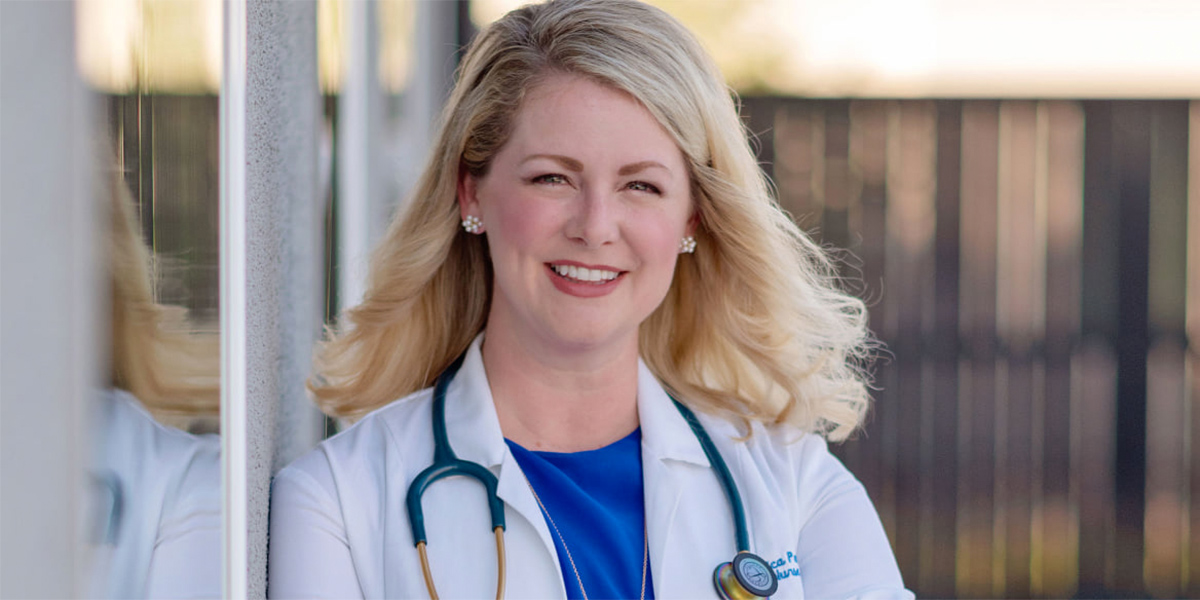Baylor prof serves as important voice of leadership in nursing

In a year designated as the International Year of the Nurse and Midwife, a Baylor professor is providing meaningful leadership and serving as an important voice for nurses on such topics as COVID-19, human trafficking, health care policy, and more.
Dr. Jessica Peck, clinical professor of nursing in Baylor’s Louise Herrington School of Nursing, was recently named president of the National Association of Pediatric Nurse Practitioners (NAPAP), the only professional association for pediatric nurse practitioners in the nation. That distinction comes on the heels of several others, including being named Texas Nurse Practitioner of the Year for 2019 and her induction as a Fellow in the American Association of Nurse Practitioners in 2018.
Her leadership extends far beyond areas many might immediately think of when considering health. Peck is a leading voice against human trafficking, often speaking to the confluence of human trafficking and health. In partnership with NAPAP, she founded the Alliance for Children in Trafficking, with a goal of coordinating and uniting national leaders to end sex trafficking and to, among other goals, train healthcare practitioners to better identify young victims of human trafficking. That’s especially important during COVID-19, she explained, in a recent Dallas Morning News column.
Throughout the COVID-19 pandemic, Peck has spoken on a variety of related topics to those inside and outside the industry. An active Twitter user, her March 28 post featuring an image of a COVID-19 testing swab within an individual’s sinus cavity went viral, receiving nearly 90,000 likes and over 70,000 retweets, and was featured in a HuffPost article encouraging readers to take the virus seriously. In a recent Waco Tribune-Herald column, she delineated a number of reasons why nurses, on the front lines of healthcare, should have a greater voice in healthcare policy.
“Nursing,” she wrote, “is an adaptive, resilient, innovative and honorable profession filled with highly educated scholars, experts, and care practitioners.” Her work demonstrates just that.
Sic ’em, Dr. Peck!

